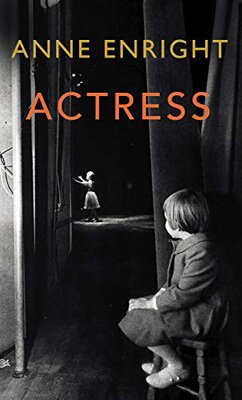There's a down to earth and relatable quality to Enright's writing which makes it so wonderfully engaging. It's a slight of hand which might initially conceal that the prose is very sophisticated and biting. “The Wren, The Wren” opens with a passage about the discomforting weirdness of inhabiting a body and consciousness which had me instantly chuckling in recognition. The story continues as a young woman named Nell relates the experience of unexpectedly falling in love. However, this is anything but a saccharine tale of romance as her relationship with a rural muscular lad turns into something that is both exciting and disturbing.
Her experiences show how love affairs and long term relationships involve varying degrees of power play – something which has been true for past generations of Nell's family as well. The narrative alternates between Nell's perspective and that of her no-nonsense mother Carmel who lives independently and has mostly avoided any committed romance. Both live with the spectre of Carmel's deceased father Phil McDaragh, a poet of moderate fame who abandoned his family and ill wife to move to America seeking more personal and professional success. His poems bookend Carmel and Nell's accounts. They're full of airy talk about love and nature. The more that's related about this family's history the more hollow and posturing they appear.
Phil gave Carmel the dubious honour of dedicating one of his poems to her. It's a kind of gift but it also cements his girl and his relationship to her as something removed from reality. Enright seems to be disentangling the illusion created by fame with both this novel and her previous book “Actress” showing how the creation of public image and representation can be very different from personal experience. But really this issue of the spotlight being cast on a certain individual highlights and exaggerates issues we all have concerning authenticity. Through these women's accounts we see how lived experience is precariously removed from perceptions and representations of it – especially when these come from a dominant man. In turn, this skews self perception. Over the course of their story Carmel and Nell gradually find greater clarity about themselves and their family. The drama disentangles the mythology which has been built around a masculine poet and patriarchal figure.
One of Nell's statements which continues to haunt me is when she recalls how whenever she wanted a present Carmel always gave her exactly what she asked for. What she hoped for was a surprise. This story shows how our relationships with each other don't thrive if we only play out our expected roles as a daughter or son or mother or father. Instead we have to see the person as they really are: a unique individual who is constantly changing and trying to figure their lives out. This novel presents a meaningful family story where connections and relationships are tested in these charismatic individuals' ongoing quest for self-fulfilment.















